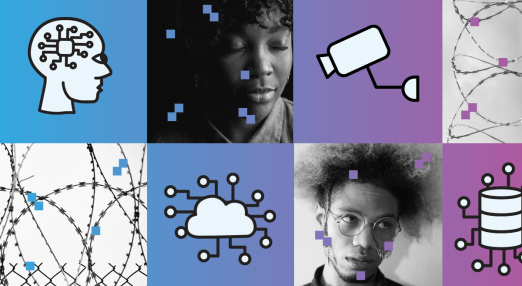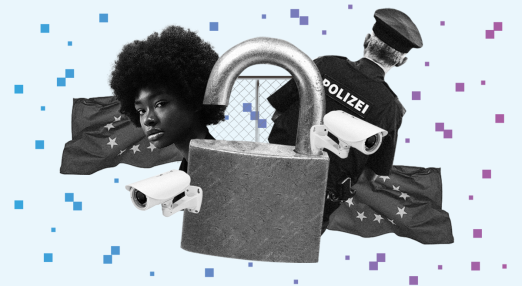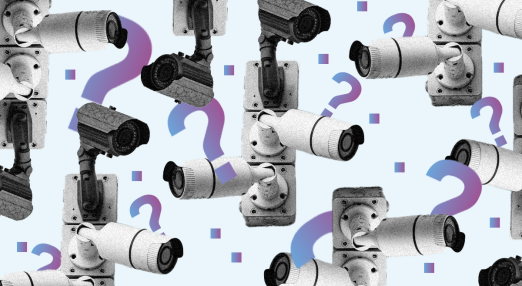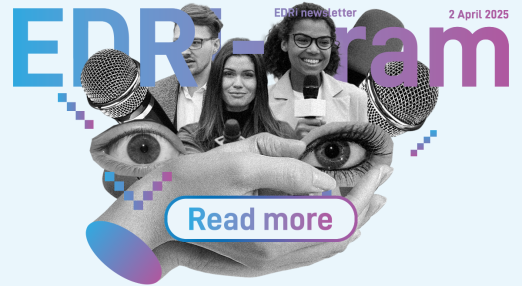When technology is the problem, not the solution: Lessons from harmful consequences of techno-solutionism in digital surveillance
AI-powered surveillance systems are being deployed globally - from Israel and Russia to EU member states. These systems target marginalised communities under the guise of improving security and efficiency. To rectify these harms, we must challenge techno-solutionist narratives and rethink why and how technology is used, and center human rights.
Filter resources
-

When technology is the problem, not the solution: Lessons from harmful consequences of techno-solutionism in digital surveillance
AI-powered surveillance systems are being deployed globally - from Israel and Russia to EU member states. These systems target marginalised communities under the guise of improving security and efficiency. To rectify these harms, we must challenge techno-solutionist narratives and rethink why and how technology is used, and center human rights.
Read more
-

Digital trade: the new frontline in the fight for our rights
The EU is signing digital trade deals that could undermine fundamental rights and block oversight of software systems shaping our lives. From data protection to algorithmic accountability, these agreements risk empowering opaque systems - used by both companies and governments - at the expense of the people most affected by them.
Read more
-

Hungary’s new biometric surveillance laws violate the AI Act
This blog post is a legal analysis of new legislation in Hungary that uses facial recognition technology in a manner that violates the EU Artificial Intelligence Act. Such use of this technology risks discouraging people from exercising their fundamental rights undermining their trust in democracy.
Read more
-

Technical experts call on Commissioner Virkkunen for a seat on the table of the European Commission’s Technology Roadmap on encryption
EDRi, in a group of 39 organisations and 43 experts, published an open letter today to call for a scientific evidence-based approach to encryption. We ask for meaningful participation to safeguard cybersecurity and fundamental rights in the process.
Read more
-

‘ProtectEU’ security strategy: a step further towards a digital dystopian future
The European Commission presented an internal security strategy that would undermine digital rights and even increase security threats. We unpack what ‘ProtectEU’ means for the EU’s future digital policy, including on encryption, data retention, and border surveillance.
Read more
-

Civil society to European Commission: Act now to defend fundamental rights from Hungary’s Pride ban and the use of facial recognition against protesters
EDRi, along with a broad coalition of civil society organisations, demands urgent action from the European Commission on Hungary’s new law banning Pride marches and permitting the use of live facial recognition technology targeting protesters.
Read more
-

EDRi-gram, 16 April 2025
What has the EDRis network been up to over the past two weeks? Find out the latest digital rights news in our bi-weekly newsletter. In this edition: Challenging data retention regime in Poland, Ljubljana’s municipal surveillance, and more!
Read more
-

Ljubljana’s municipal surveillance: Where trust trumps data
During a Ljubljana municipal council debate on CCTV transparency, several concerning points were raised regarding the Slovenian capital's network of over 500 surveillance cameras and the methods employed to assess their effectiveness in preventing crime. The discussion revealed that the entire system relies heavily on trust in the authorities, without any substantial data to support the cameras' effectiveness or a clear rationale for their widespread deployment.
Read more
-

Avoiding regulation of biometric surveillance and loyalty applications: The 20th Big Brother Awards took place in the Czech Republic
For the twentieth time, the Czech organization and EDRi member IuRe (Iuridicum Remedium) awarded prizes to the greatest snoopers.
Read more
-

Panoptykon Foundation challenges the data retention regime in Poland: Telecom companies requested to delete activists’ data
EDRi member Panoptykon Foundation supports activists and attorney-at-law Artur Kula to demand that the four biggest telecom companies in Poland delete data stored for the purpose of law enforcement in the 12 months prior. They want to challenge the current unlawful data retention regime in Poland.
Read more
-

CJEU saved the HADOPI: what implications for the future of data retention in the EU?
The Court of Justice of the European Union judgement on the HADOPI case (C-470/21) is significant for the ongoing debate on mandatory retention of metadata, such as traffic and location data. EDRi provides key takeaways and what they mean for the upcoming data retention legislation by the European Commission.
Read more
-

EDRi-gram, 2 April 2025
What has the EDRis network been up to over the past two weeks? Find out the latest digital rights news in our bi-weekly newsletter. In this edition: DSA complaint X, New civic coalition for journalists and civil society, imagining EU-topia, & more!
Read more
